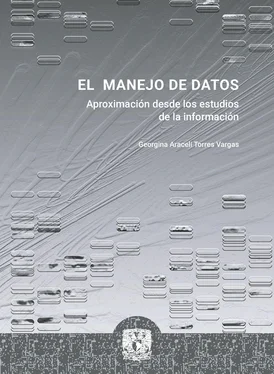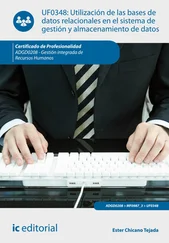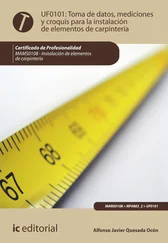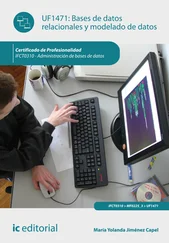This paper provides an overview of RDM services and their importance in the context of Open Science. It summarizes the findings from the Data Curation project sponsored by the International Federation of Library Associations (IFLA) Library Theory and Research (LTR) Section. The IFLA study focused on the roles and responsibilities of RDM professionals in international and interdisciplinary contexts. This paper discusses the opportunities and challenges in providing RDM services in light of the findings from the IFLA Data Curation project.
OPEN DATA AND THE OPEN SCIENCE MOVEMENT
In the traditional scholarly communication model, scholars disseminated the results of their research through conference presentations, books, and articles published in peer-review, subscription-based journals. The Open Access (OA) movement has changed the model of scholarly publishing encouraging scholars to share their papers through open access publishing or depositing published articles in institutional or disciplinary repositories (Swan 2012). The emphasis of OA, however, has been almost exclusively on opening access to journal articles, not so much on research data. As Borgman (2015) notes open data is “substantially distinct from open access to scholarly literature” (p. 44). Researchers would sometimes share data sets with colleagues in the scholarly community but rarely provide open access as part of the traditional scholarly communication practice.
Data is a valuable output of scholarly work and the calls for providing open access to research data come not only from the funding agencies but also from the members of the scholarly community. Opening access to data is believed to contribute to transparency and reproducibility of research and to the more efficient scientific process (Kraker et al. 2011; Molloy 2011; Nosek et al. 2015). Open research data can be freely accessed, reused, and redistributed for scholarly purposes. The principles of FAIR data (findable, accessible, interoperable and reusable) provide a foundation for access and reuse of research data across disciplines and borders (Wilkinson et al. 2016). Open Data is a key component of the Open Science movement.
The Open Science movement advocates for opening all phases of the research cycle and sharing all outcomes of the scientific work (Foster 2018). It emphasizes a more open, inclusive, and collaborative research process and encourages new ways of diffusing knowledge by using digital technology. The term “Open Science” often serves as an umbrella term encompassing scholarly outputs, practices, and collaborative digital tools. In its broad understanding, it includes open data, open publications, open educational resources (OER), open source software, open peer review, and citizen science (Bezjak et al. 2018). Fecher and Friesike (2014) note the diversity and even ambiguity of the discourse on Open Science and identify several perspectives or “schools of thoughts,” ranging from making knowledge freely available for everyone to developing an alternative system for evaluating quality and measuring impact.
Vicente-Sáez and Martínez-Fuentes (2018) acknowledge the diversity of perspectives and concepts of Open Science in their systematic review of the scholarly literature. The authors provide an integrated definition to stimulate a debate about the social, economic, and human added value of Open Science. As a result of their analysis, Open Science is defined as
the practice of science in such a way that others can collaborate and contribute, where research data, lab notes and other research processes are freely available, under terms that enable reuse, redistribution and reproduction of the research and its underlying data and methods. In a nutshell, Open Science is transparent and accessible knowledge that is shared and developed through collaborative networks (Vicente-Sáez & Martínez-Fuentes 2018).
The concept of Open Science and the FAIR data principles have been embraced by the European Commission and incorporated into the European Open Science Cloud roadmap (European Commission 2018). A recent report examines the range of data skills needed to support the implementation of FAIR principles and distinguishes between research community skills, data science, and data stewardship (Hodson et al. 2018). The proponents of Open Data recognize that not all data can be open and acknowledge the need to balance openness and protection of sensitive data (European Commission 2016). Qualitative and personal data in social and health sciences pose many challenges for sharing. Some data can be anonymized and released while other data sets will need to remain closed. The European Commission promotes the principle that data should be “as open as possible, as closed as necessary” (European Commission 2016, p.4). Research data management is a critical component of opening and sharing data and determining the levels of openness.
ACADEMIC LIBRARIES AND RDM
The data-intensive research environment and the movement towards Open Science present new opportunities for library professionals. University libraries in many countries have been assuming leadership roles in promoting open access and offering services in RDM. Traditionally, libraries provided data services for their users by acquiring datasets and ensuring their discovery and access. The new environment challenges libraries to move beyond the traditional service roles of facilitating the discovery and delivery of information resources (Fearon et al. 2013). It encourages a more participatory role in the research process and the development of new services to actively support scholars in managing and preserving research data. The concept of data life-cycle plays a central role in developing and organizing RDM consultative and technical services (Carlson 2014). Librarians offer unique expertise in metadata and archiving, and add value at different points of the data cycle.
Academic libraries began to provide a broader range of data management services to support researchers in meeting the requirements of funders and publishers in the last decade. Academic librarians with expertise in RDM who support researchers in meeting funders’ compliance and preparing data for release are a vital part of the services. The development of RDM services and the roles of academic libraries in data stewardship have been the subject of extensive survey research (Cox & Pinfield 2014; Tenopir, Birch, & Allard 2012; Tenopir et al. 2015). The focus of this research was on the types of services offered by academic librarians, maturity levels, and plans for future development. The findings indicate that academic libraries mostly offer consultative services and training, especially for data management planning. Technical services that involve maintaining a data repository and support for data archiving were limited. Many researchers see RDM services as an extension of traditional academic library roles in outreach and training.
Most of the research, however, focused on academic libraries in the United States and the United Kingdom. More recently, Tenopir et al. (2017) conducted a survey of research data services in European academic libraries. The study indicates that more European libraries currently offer consultative than technical services, but also manage infrastructure for data storage and collaborate with other units on campus. Cox et al. (2017) expanded the coverage to seven countries and provided an international comparison of several aspects of RDM development, including policy and governance, type of services, and staff deployment and skills. The IFLA Data Curation project built upon this prior research and expanded it by providing an international and interdisciplinary perspective. The design of the study and the findings are reported in the forthcoming paper (Tammaro et al. forthcoming). The preliminary findings about the types and structure of RDM services were presented at the Association for Information Science and Technology conference (Matusiak & Sposito 2017).
Читать дальше











![Brian Thompson - A Monkey Among Crocodiles - The Life, Loves and Lawsuits of Mrs Georgina Weldon – a disastrous Victorian [Text only]](/books/704922/brian-thompson-a-monkey-among-crocodiles-the-life-thumb.webp)
